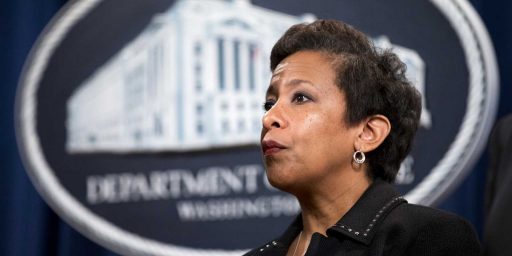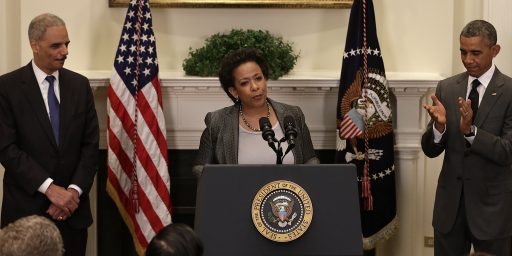Terrorism and IR Theory, Part II
Mark Lynch’s contention that international relations theory has inadequately responded to the post-911 world, discussed here yesterday, has drawn quite a bit of intelligent discussion worthy of note.
Dan Drezner makes several cogent points that can be roughly summarized as:
- Lynch’s methodology omits several serious journals that in fact treat terrorism issues;
- It takes a long time to research and write an article, let alone get it through the peer review pipeline;
- Because this is a relatively new topic, much of the initial submissions are likely to be crude and thus rejected;
- The Iraq War is a sexier hot topic
- There’s more money available to study other things, like China
In a follow-up, Lynch agrees that some of these points are well taken but notes that, even including the journals in question, the number of articles is quite low and that, at the same point in “the post-Cold War era,” a flood of articles about “the post-Cold War era” had been published.
Terrorism expert Leopold Stotch, commenting at PoliBlog, observes,
IR theory deals primarily with systemic-level actors and variables, and when it looks toward the sub-systemic charges of reductionism are readily thrown. However, if you look at the literature in comparative politics, there is plenty of established as well as new theory that is being used to analyze global terrorism. The journals that Lynch looks at are simply the wrong ones in terms of doing research on political violence.
[Why is he commenting at PoliBlog rather than applying his analysis here? -ed. He’s apparently tied up with grading. ]
Steven Taylor, a comparativist by trade, responds that,
If the topic is simply political violence, then you are quite correct: CP work is the place to look. However, I would argue that there is room in the broad are of IR theory to discuss perhaps not al Qaeda, per se, but the issue of violence perpetrated by non-state actors against nation states. There are system level issues of relevance.
There’s quite a bit of excellent discussion of the issue at all three sites.





